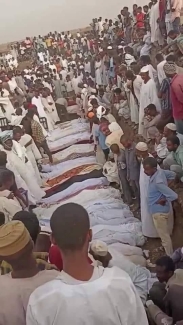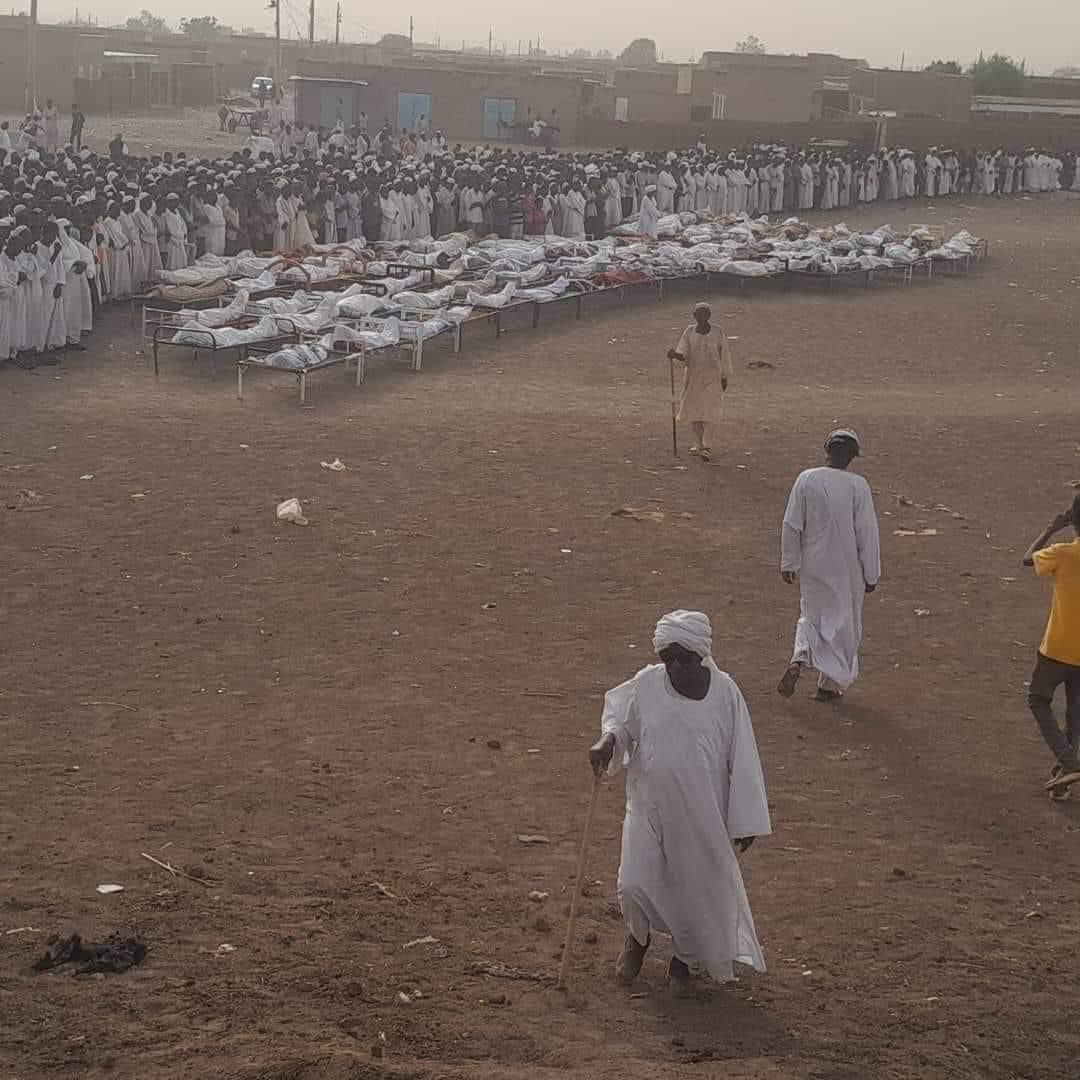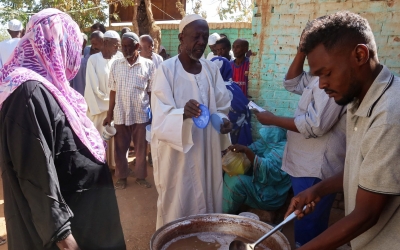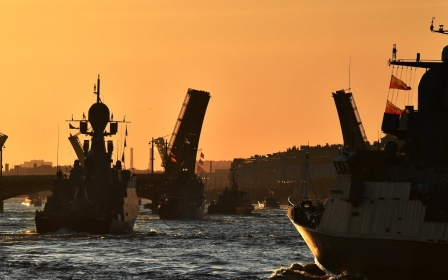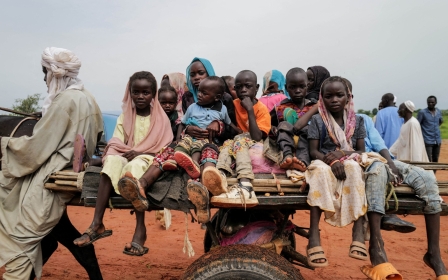Sudan’s villages take up arms but powerless to stop RSF massacres
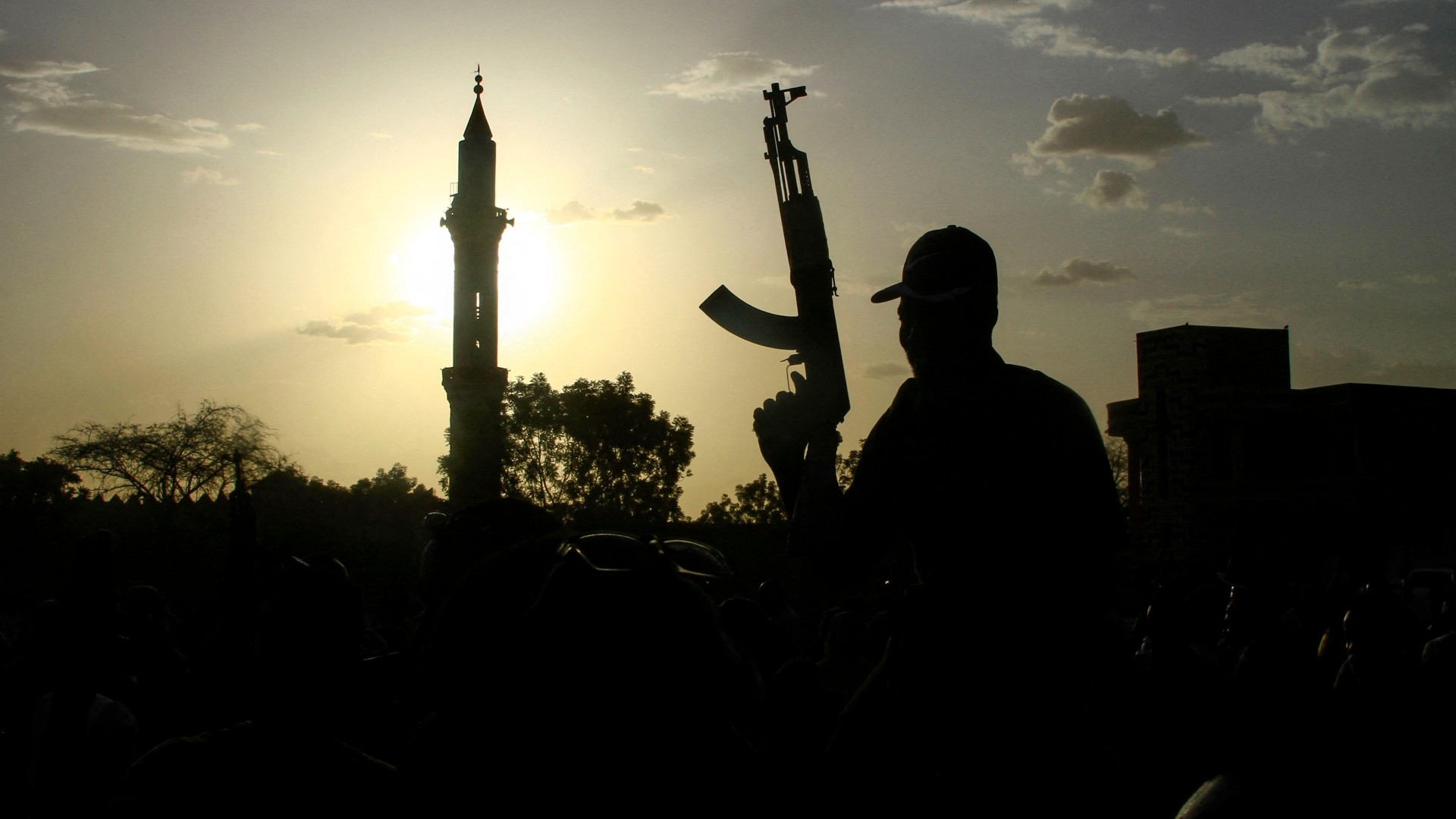
On Wednesday morning, dozens of paramilitary Rapid Support Forces (RSF) fighters surrounded Wad al-Nura.
The village in the west of Sudan's Gezira state had remained relatively peaceful over 14 months of war, and at times had acted as a refuge for people from neighbouring areas escaping RSF attacks. This time, however, the paramilitary fighters had Wad al-Nura in their sights.
Anticipating an attack, local farmers dug trenches at the village’s entrances and filled them with water, hoping makeshift moats would help protect them. Some farmers, former soldiers and police officers armed themselves and erected a small checkpoint.
The RSF was not deterred. According to pro-democracy activists in Wad Madani, the Gezira state capital, the fighters ringing the village opened fire, beginning a frenzy of shooting in all directions.
After a lull in the killing, the fighters started again. The sources in the Madani Resistance Committee said the slaughter appeared systematic. Scores of people were killed on sight. Hundreds were sent scattering seeking safety.
New MEE newsletter: Jerusalem Dispatch
Sign up to get the latest insights and analysis on Israel-Palestine, alongside Turkey Unpacked and other MEE newsletters
For weeks, the world has been warning of an impending massacre in al-Fasher, the Darfur city besieged by the RSF.
But while all eyes were trained on the North Darfur state capital, 1,000km to the east, paramilitary fighters were rampaging through Gezira state, with fighting ongoing.
Several sources told MEE that 150 people were killed in Wad al-Nura alone.
Around 100 were buried in a mass grave in a public square. Thirty-five children were among the dead, according to the UN.
And though that massacre has brought condemnation from foreign governments, a wave of violence has gripped Sudan with sources saying hundreds were killed in various parts of the country over the past two days alone.
Witnesses have described thousands of Sudanese fleeing for their lives as RSF fighters face little to no resistance from Sudan’s army.
These attacks have been seen in White Nile, Sennar, North Kordofan and South Kordofan states in recent days, as well as Omdurman, Khartoum’s sister city on the western side of the Nile, where 40 people were killed on Tuesday according to activists.
The Sudanese Armed Forces (SAF) have responded with air strikes, which sources on the ground said had led to more death and destruction for the civilian population.
Taking up arms
Soon after the Wad al-Noun massacre, the SAF and RSF traded accusations.
Yet the Gezira state resistance committees, part of a country-wide network of pro-democracy activists, published footage of the massacre showing RSF troops using heavy guns and artillery against the villagers.
“The village of Wad al-Nura has witnessed a genocide,” it said. “SAF hasn’t provided any kind of protection to the civilians.”
The RSF denies it killed civilians. It said Islamist militias had armed the village’s residents, who it claimed were preparing to attack the RSF.
The paramilitary force has been battling the Sudanese army since conflict between the former allies broke out in April last year. Since then, an estimated 150,000 people have been killed, nine million displaced and parts of Sudan brought to the brink of famine.
Sudan’s military has struggled against the RSF’s more nimble and battle-hardened fighters. But in recent months it has made some gains by importing Iranian drones and swelling its ranks with former rebels, civilian volunteers and other armed groups.
The RSF claimed that the army and allied “jihadist” militias had gathered in three camps to the west of Wad al-Nura and neighbouring al-Mangali. It said it captured heavy weapons and lost eight fighters in its Wednesday raids.
Sudanese who have recently fled Gezira told Middle East Eye that communities across the state are mobilizing in self-defence, and this is what prompted the RSF assault, fearful of growing resistance.
One source, who is currently in Gadaref and spoke anonymously for security reasons, said resistance against the RSF has taken many forms, including attempts to negotiate and ensure civilians’ safety.
'The people of Gezira have the right to defend themselves as long as the RSF want to kill them'
- Source from Gezira
“The people of Gezira have the right to defend themselves as long as the RSF want to kill them and the army is derelict in its duty to defend civilians and the entire country,” the source said.
“I’m from al-Takena village, which witnessed wide violations and attempts to defend themselves. We tried to collect money from our sons living abroad to buy weapons and establish small groups to defend ourselves. But the gap between us and the RSF is huge. So, they defeated us.”
Sources in and from Gezira said the villages of al-Husa, Fadasy, al-Munira and al-Halaween, among others in the state’s west, have been subjected to vicious attacks in recent weeks.
Ahmed Mohamed, a resident of al-Duem in White Nile state west of Gezira, told MEE that the RSF attacked villages there too, including al-Malig and al-Shetaib. Hundreds of youths in these areas have formed defence groups, known as the popular armed resistance, which nominally operate under the command of the SAF.
The RSF tends to characterize these groups as being backed by elements of ousted president Omar al-Bashir’s former government, including hardline Islamic groups, accusations they forcefully deny.
And though many Sudanese, particularly critics of the RSF, see their mobilization as evidence of popular rejection of the paramilitary force, some political parties have voiced concerns that the arming of civilians will further complicate and prolong Sudan’s conflict.
Looming threat
Civilian mobilization is ongoing around al-Fasher, where the military and former rebel groups are arming residents in anticipation of an RSF offensive, a resident who has taken up weapons told MEE.
“I see that the popular armed resistance is spread everywhere and it’s gradually uniting the Sudanese to defend their country,” he said.
The prospect of an offensive on al-Fasher has caused concern for weeks. The RSF has closed off almost all routes out of the city, risking al-Fasher becoming a “kill box” if attacked.
Already, RSF fighters have raided camps surrounding the city where Sudanese displaced in the 2003-2005 Darfur conflict are residing. The backbone of the RSF is made up of fighters that belonged to the infamous Janjaweed militias that terrorized those same Black African populations two decades ago.
Adam Rojal, a spokesperson for displaced Darfuris, said the RSF attacked Abu Shook camp last week, killing around 13 people, burning it to the ground and forcing its residents away.
“What the Darfur region is witnessing, especially in the city of al-Fasher in North Darfur state, is a war crime, a crime against humanity, and collective punishment of civilians. Everyone is doomed to die from starvation or due to deliberate indiscriminate bombing by the parties to the conflict,” Rojal told MEE.
“The fighting must stop immediately. Humanitarian corridors must be opened. Humanitarian aid must be allowed to reach those in need, exhausted by hunger and living in unspeakably horrific conditions.”
Al-Sadig al-Nur, spokesman of the Sudan Liberation Movement, a former rebel group headed by Darfur governor Minni Minawi, said the combined efforts of ex-rebels, mobilized civilians and the military had repulsed RSF efforts to completely choke the city of supplies.
“The RSF even shut down the main water dam in Golo area, which is the only source of the water to al-Fasher city, but our forces repulsed them and restored the water facility,” he told MEE.
However, skirmishes and attacks on communities surrounding al-Fasher and the city itself continue. According to the Displacement Tracking Matrix (DMT), there have recently been clashes in al-Fasher’s western neighbourhoods, displacing about 40 households.
“There were also reports of deaths and injuries among civilians. The situation remains tense and unpredictable” the DMT said in a new report.
Middle East Eye delivers independent and unrivalled coverage and analysis of the Middle East, North Africa and beyond. To learn more about republishing this content and the associated fees, please fill out this form. More about MEE can be found here.


